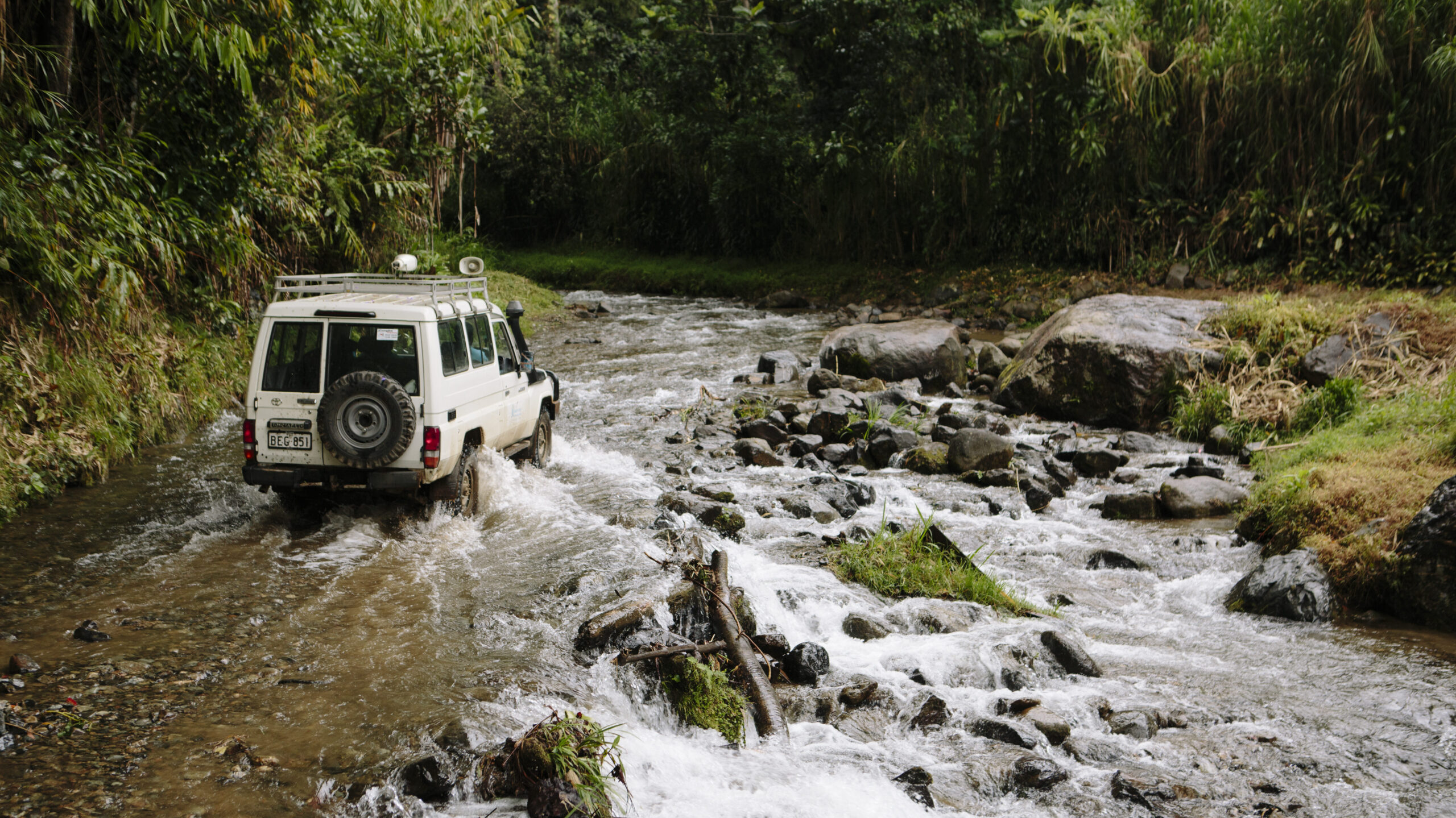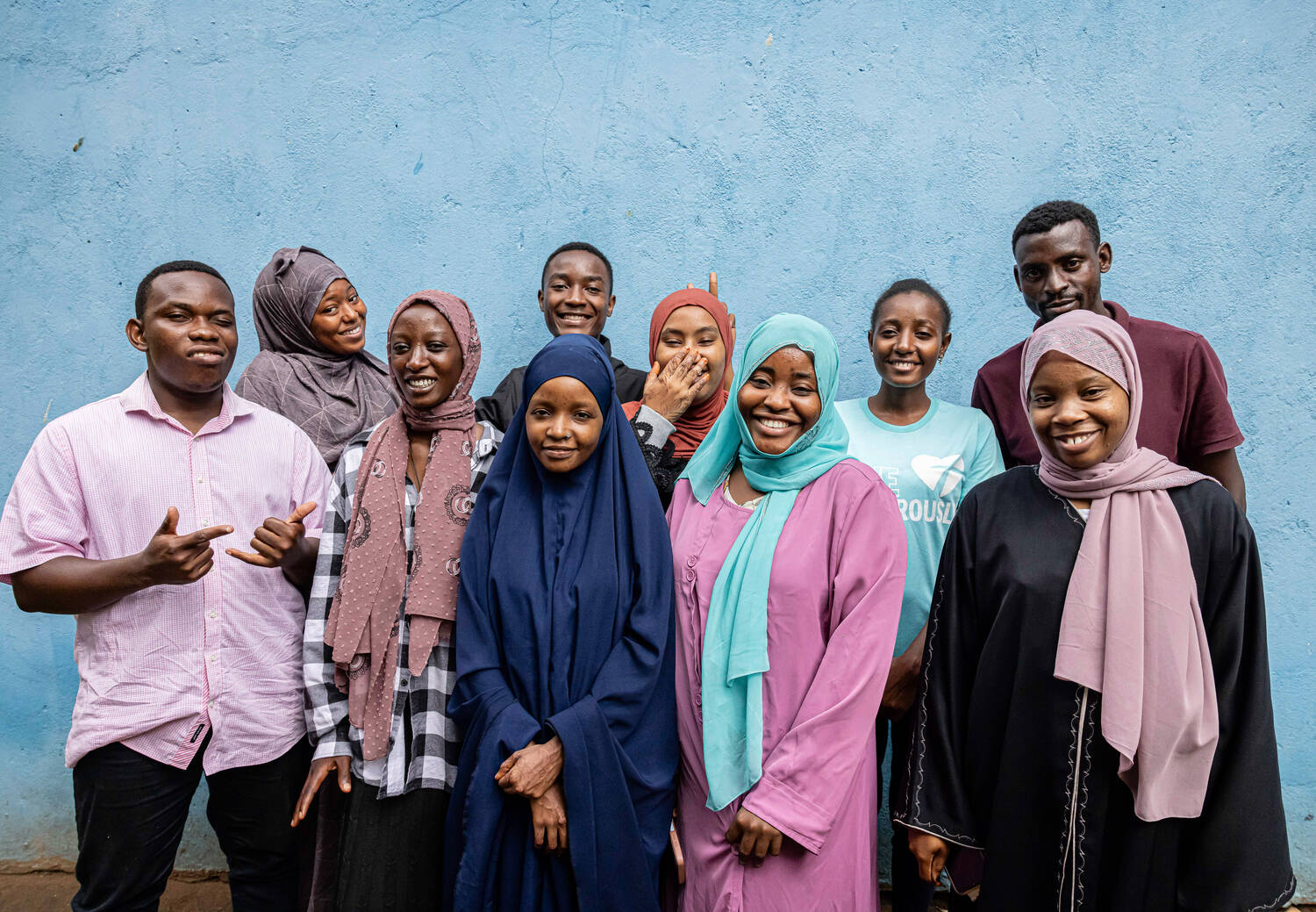Reaching marginalised groups with reproductive choice means tailoring our approach to suit their needs. That’s why MSI Zambia piloted an innovative approach to educating adolescents with disabilities on their sexual and reproductive healthcare, and it starts in an unlikely place: the football field.
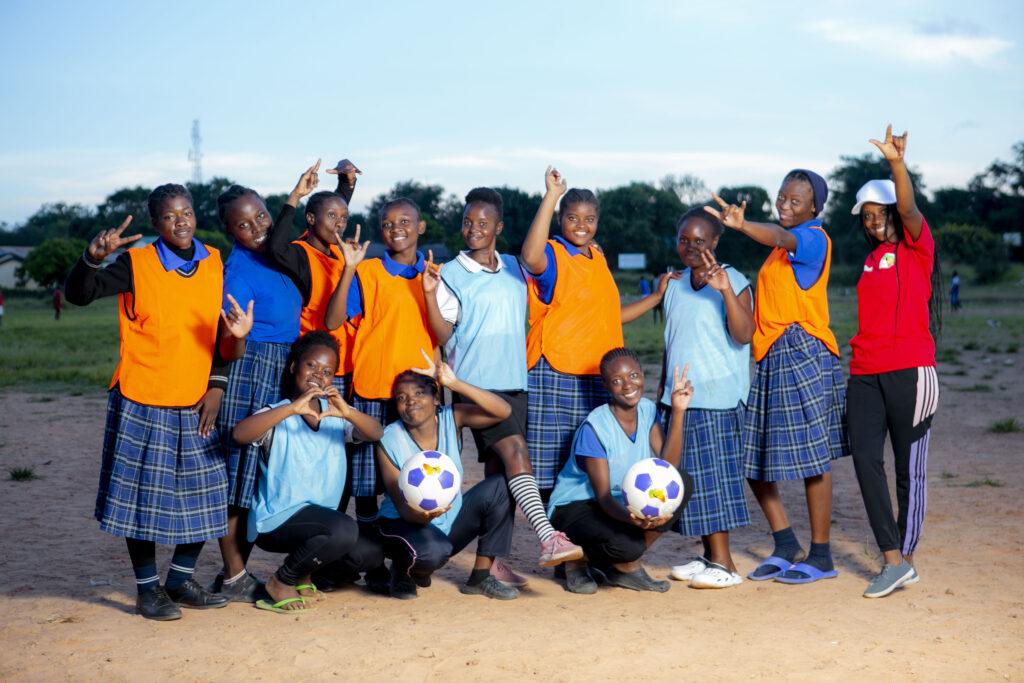
With funding from Comic Relief, we partnered with Tackle, Zambia Agency for Persons with Disabilities, and Zambia National Association for the Deaf to use football as a teaching tool. Using sign language interpreters, peer educators, and football coaches, we delivered interactive sessions that combined football drills with health messages. One of the games involved dribbling footballs to True or False signs in response to health statements, engaging the girls and allowing educators to dispel common misconceptions and rumours around sexual and reproductive health.
The sessions empowered the girls with knowledge on contraception, HIV prevention, menstrual health, gender-based violence, and their broader sexual and reproductive health and rights. The project also improved their self-esteem, confidence, and communication skills.
To make sure that efforts to build awareness of sexual and reproductive health and rights through football were inclusive, Tackle amended its curriculum to include Deaf young people. Coaches were trained to use visual signs to deliver sessions and use coloured bibs to denote different commands, such as “Play” and “Stop”. Signs were also held up to explain healthcare information, such as the variety of contraceptive methods on offer to young people. That way, Deaf participants could learn about their health and rights through interactive play-based education. MSI Zambia prioritised working with persons with disabilities in the project design and implementation to ensure their voices were heard and their needs were addressed.
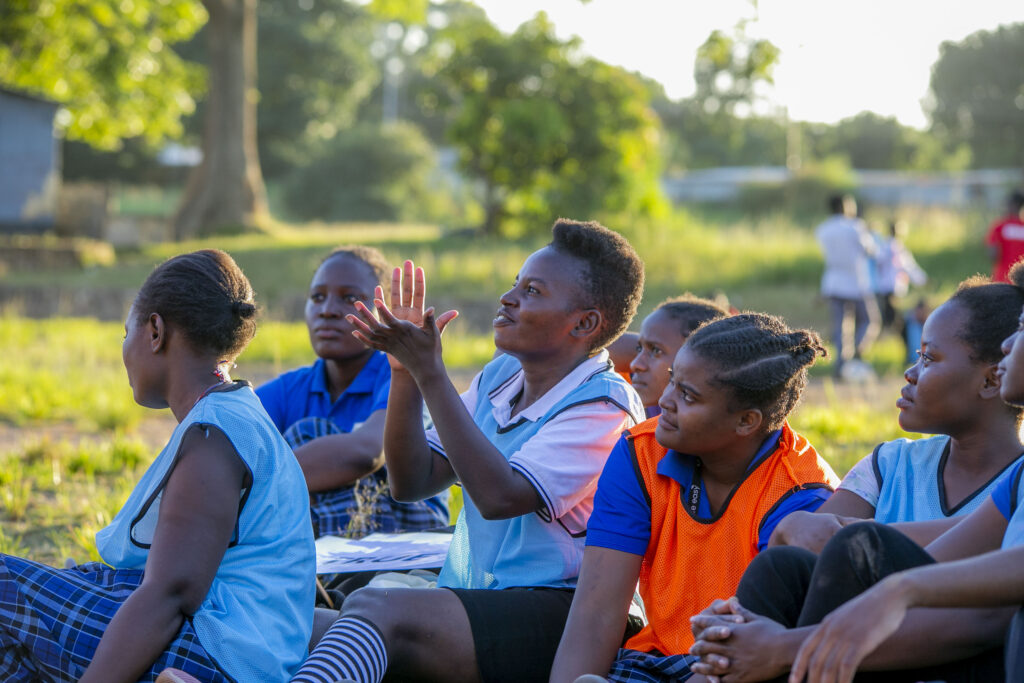
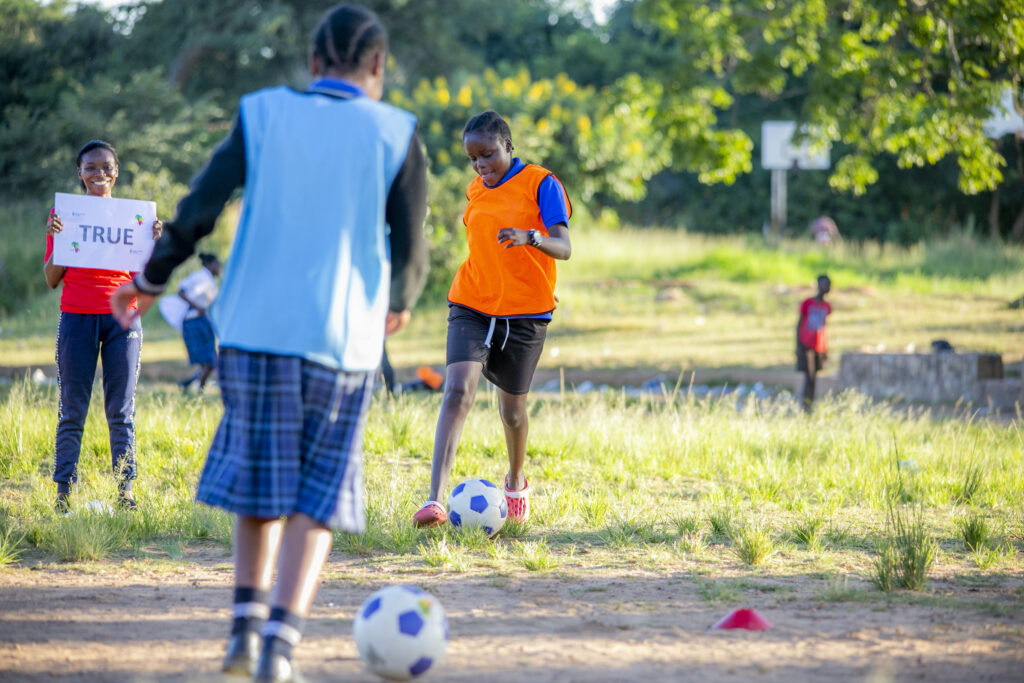
Prior to the project, MSI Zambia and Tackle staff attended a disability-focused Values Clarification and Attitude Transformation (VCAT) workshop to ensure they understood disability inclusivity. The workshop encouraged project leaders to work through unconscious biases and gave them knowledge on how to tailor their teaching approach to accommodate people who are deaf.
The pilot was implemented across two schools in Lusaka from March to April 2023, and reached 50 girls who are hearing impaired. We worked with graduate teachers who had recently graduated in sign language education, from the Zambia Institute of Special Education, to act as coaches.
The girls reported that they loved the football sessions and gained an increased understanding of their sexual and reproductive health. They also said the sessions created a safe space to have fun with each other and form stronger friendships.
Off the pitch, the girls continue to be supported with resources on how to access MSI services for counselling, contraception, and abortion care.
MSI Zambia would like to scale up the intervention to other schools and districts in the country, as well as include boys who are deaf and people with other types of disabilities.
By partnering with organisations of persons with disabilities, MSI Zambia is reaching one of the most marginalised groups and empowering young people to make informed choices about their health, ensuring that no one is left behind.
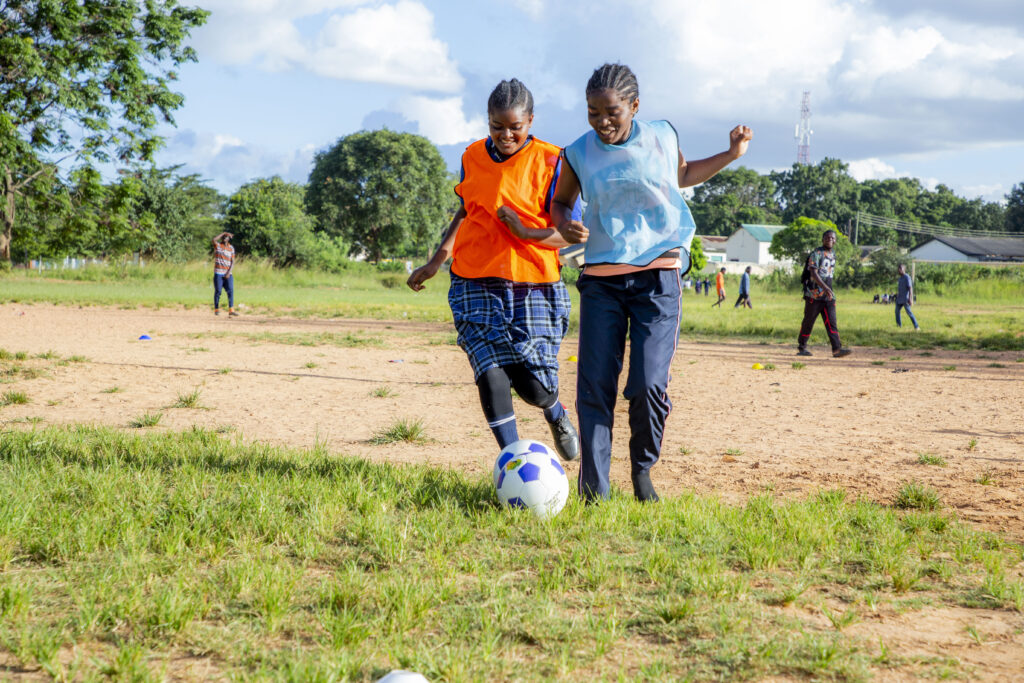
Why do we need tailored approaches for young people with disabilities?
As a healthcare provider, it’s our responsibility to make services accessible to anyone who needs them. Inclusion is central to our mission, and disability rights, like reproductive rights, prioritises bodily autonomy.
An estimated 16% of the world’s population—1.3 billion people—have a disability. Though people with disabilities need sexual and reproductive healthcare, they often face additional barriers to accessing information and services. These can be physical, such as inaccessible clinic entrances or a lack of disability-friendly equipment, or societal, including stigmatising attitudes held by healthcare professionals or limited sexual health education due to the misconception that people with disabilities are not sexually active. Across our programmes, MSI partners with various Organisations of Persons with Disabilities (OPDs) to design inclusive services and initiatives that break down information and service access barriers.
Young women with disabilities face intersecting inequalities, which can lead them to be more vulnerable to sexual abuse, exploitation, unintended pregnancies, and sexually transmitted infections. They also face stigma, discrimination, and exclusion from education, health care, and social support. MSI’s Adolescent Strategy ensures we’re reaching young people with our services, and we approach programme design with an intersectional lens.
It’s our priority to ensure that people with disabilities and adolescents have access to inclusive, dignified, and informed reproductive choice, so they can determine their own futures.






